Develop Outcomes-Focused Recruitment Messages for Adult Learners
Adult learners compose at least a third of the American postsecondary student population and represent a far greater proportion of the potential student audience than first-time, first-year students. Whether called adult learners, nontraditional students, or any other variation, these students offer an attractive growth opportunity, but require a distinct recruitment approach from the often-more familiar first-time, first-year students. Adult learners’ recruitment needs are also evolving as consumer expectations shift to expect greater personalization.

Help your staff and leadership understand adult learners’ recruitment needs
To better attract adult learners, recruitment staff need to understand adult learners’ evolving expectations as consumers and unique focus on program outcomes.
Messages must appeal to prospective student motivations, concerns, and emotional drivers to reach a greater share of the adult learner market. Adult learners often most value the promise of a concrete return on their educational investment; therefore, successful recruitment requires outcomes-centric messaging.
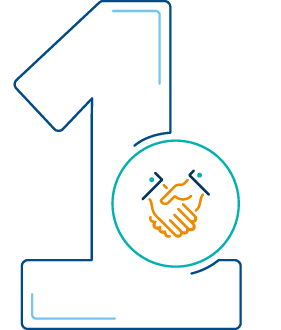
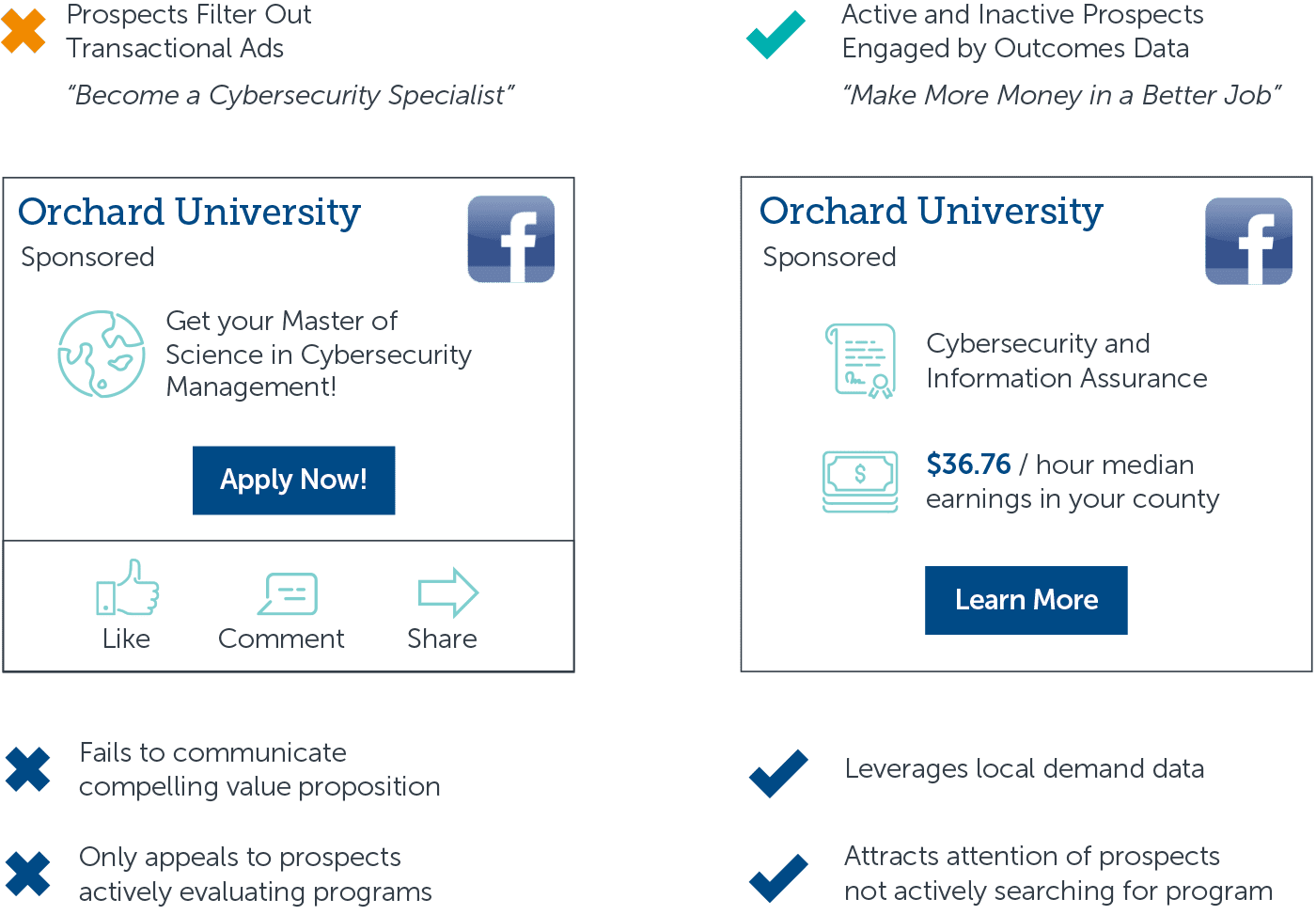
Further segment the adult learner audience
Working professionals represent the core student market for COE units, and can be divided more accurately than the oft-referenced career changers and career advancers. Segmentation within the adult learner audience allows recruitment messaging to define the target student more narrowly. Messages can then speak directly to those personalized attributes.

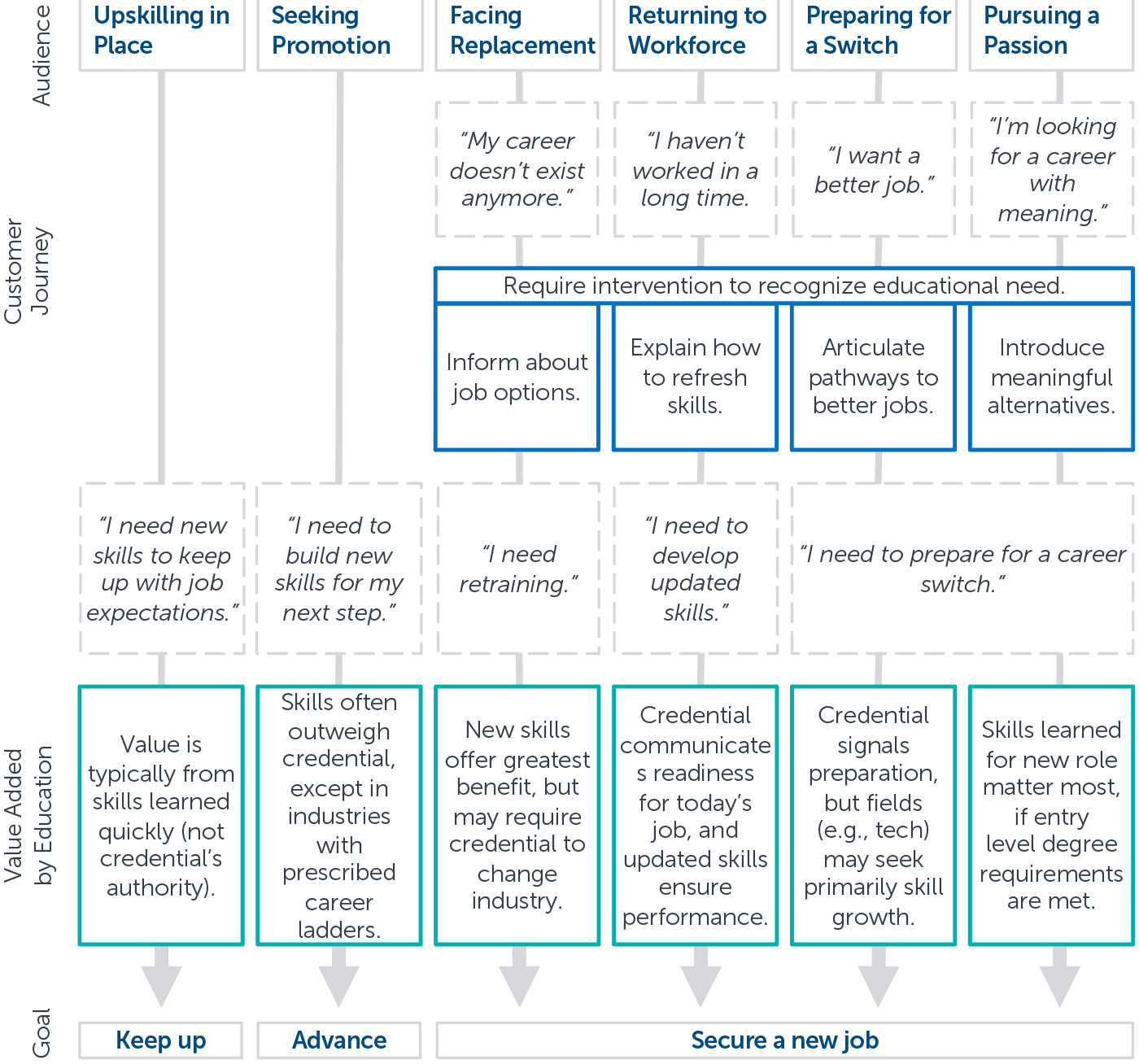
Assess your current adult learner messaging for outcomes focus
Progressive institutions use outcomes marketing in their advertisements, program pages, and unit or institutional homepages to inform prospective students about the career value of returning to school. The COE Forum defines outcomes marketing as campaigns and messages that provide evidence to prospective students about the tangible career benefits of a program. This evidence includes:
- Labor market demand that demonstrates opportunities in a field of study (e.g., available job openings, expected job growth, average earnings by position).
- Success and validation of graduates (e.g., student testimonials, quantitative placement data, ratings and reviews, program rankings).

Collect student outcomes data
Many institutions struggle to create outcomes-focused adult learner marketing materials because programs don’t have outcomes data to use. Either alumni outcomes data or relevant labor market intelligence, however, can provide insight into potential student outcomes.
Read on for strategies to collect alumni outcomes data.

Incorporate collected data into recruitment messages to articulate value to adult learners
Highlight relevant local and regional career opportunities to capture scarce prospective student attention, support prospective students’ independent career exploration, and deploy authentic student value stories and other forms of social proof to encourage students to inquire, apply, and ultimately enroll.

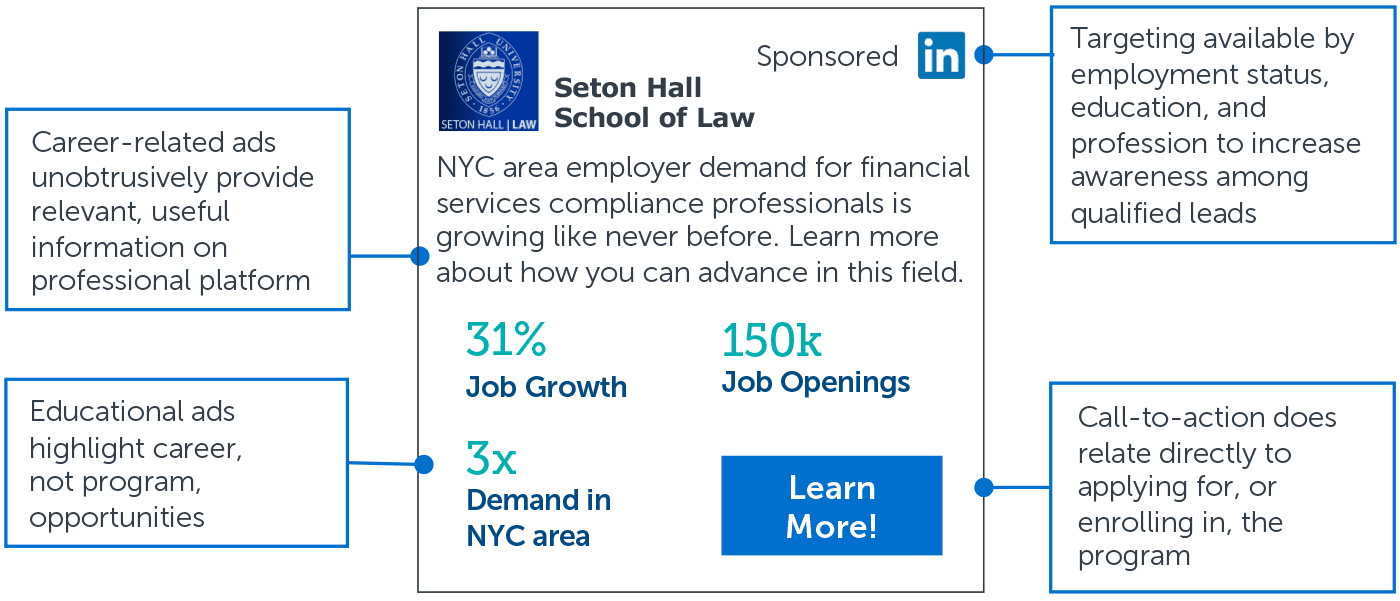
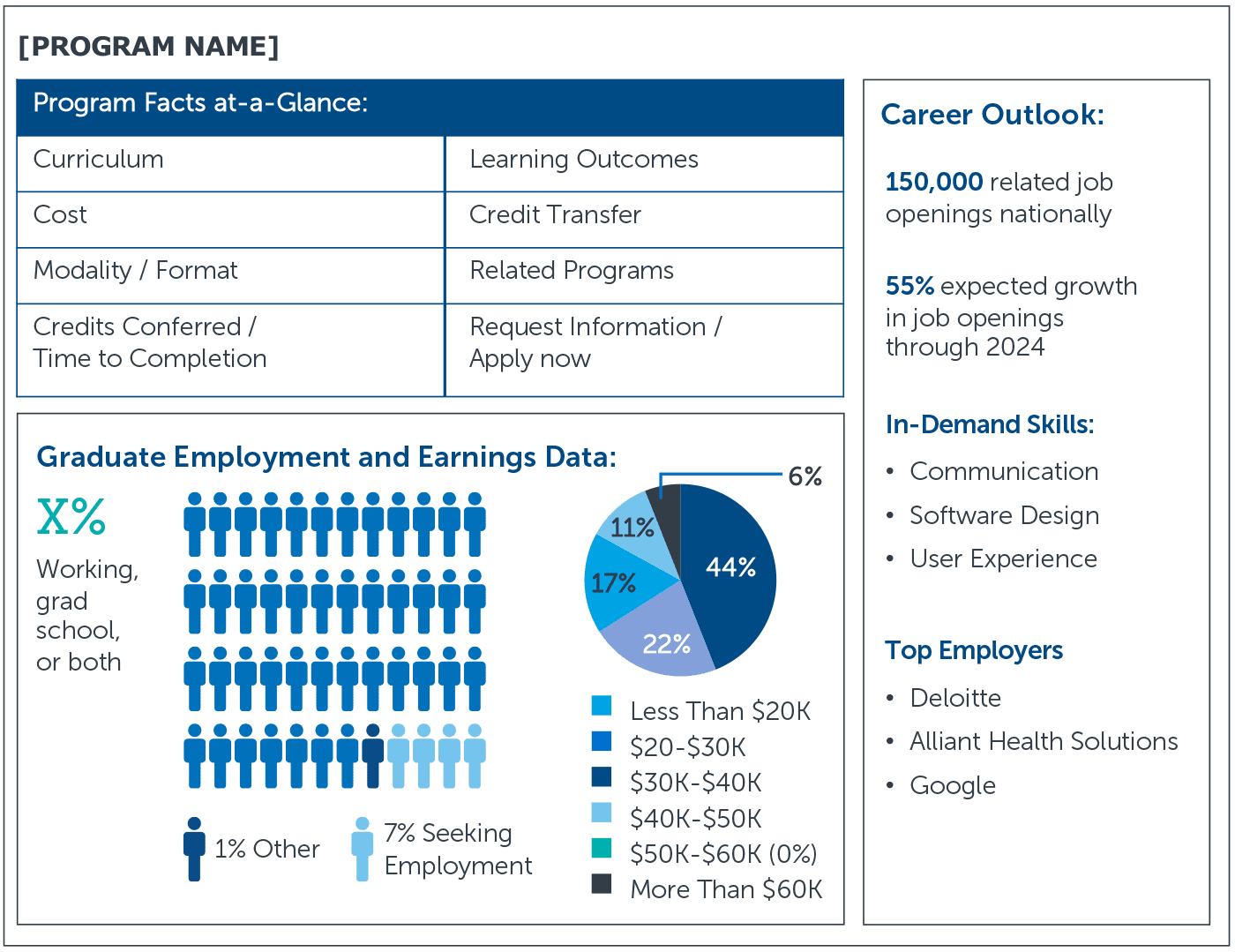
Develop a compelling and differentiated website
Beyond outcomes-focused messaging, don’t forget that websites must address essential information adult learners seek during program selection, like program cost. See our Web Presence Optimization Toolkit for more website fundamentals. Drawing upon industry best practices from across the public and private sectors, this suite of tools focuses on actionable strategies to assess current site performance, recognize gaps in functionality, create appealing content, and identify opportunities for targeted investments.

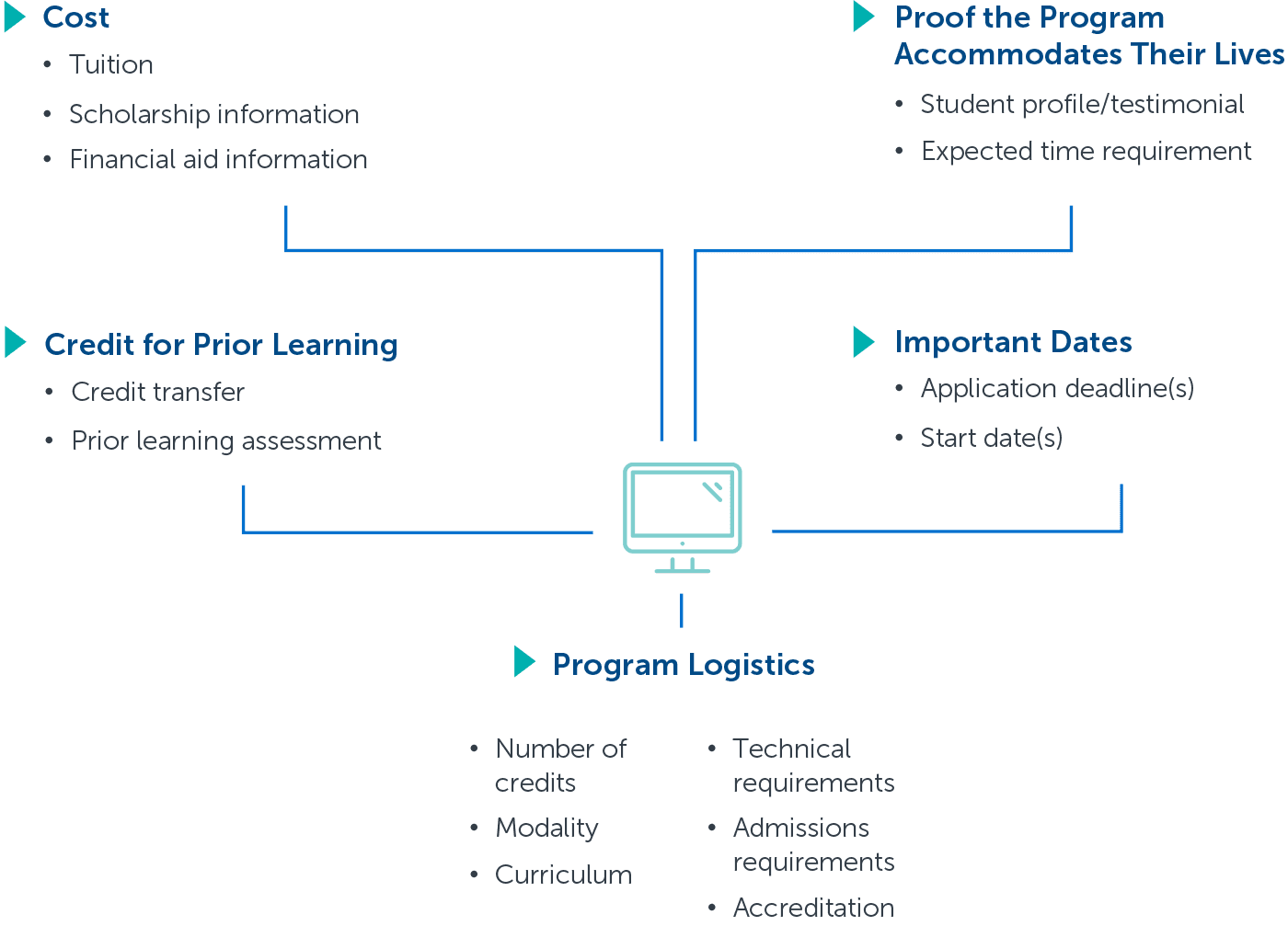
This resource requires EAB partnership access to view.
Access the roadmap
Learn how you can get access to this resource as well as hands-on support from our experts through Professional and Adult Education Advisory Services.
Learn More